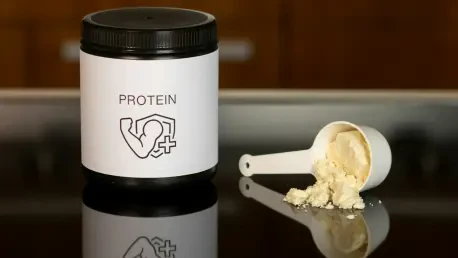In the realm of nutrition, protein stands out as an indispensable nutrient essential for rebuilding tissues, fostering immune health, and maintaining optimal hormone levels. Despite its crucial function, an alarming number of individuals may unknowingly fall short of their recommended daily protein intake, jeopardizing their health considerably. Recognizing the implications of this deficiency is crucial not only for those keen on fitness but for anyone aiming to maintain a balanced and healthy lifestyle. Grasping the subtle warning signs your body may exhibit when deprived of adequate protein could transform dietary habits and, ultimately, well-being.
Key Symptoms of Protein Deficiency
One of the most prominent signs of insufficient protein intake is persistent muscle soreness, which indicates a failure in the muscle repair process. For athletes and active individuals, this often results in diminished strength and poorer performance, a direct consequence of inadequate protein to support muscle recovery and building. Regular fatigue is another telltale sign, where a protein-short diet leads to reduced energy levels as amino acids, fundamental for metabolic processes, are sparse. Moreover, those experiencing slow recovery from injuries might need to reconsider their dietary protein levels since proteins play a pivotal role in tissue regeneration.
An often overlooked consequence of protein deficiency may present as an increase in body fat. This happens when the body’s metabolism is compromised due to inadequate protein, leading to inefficient utilization of calories, thereby causing an increase in fat deposits. Additionally, weakened immunity often correlates with inadequate protein, as proteins are integral to the production of illness-fighting antibodies and enzymes. When these vital components are compromised, the body’s natural defense mechanisms weaken considerably, reflecting possible susceptibility to frequent illnesses and infections.
Aesthetic and Dietary Impacts
Beyond physical performance and immunity, protein insufficiency can significantly affect aesthetic attributes, such as hair thinning and brittle nails. Protein is essential for keratin, the primary constituent of hair and nails, and its inadequacy can lead to noticeable changes in their health and appearance. If these signs persist, the source may very well be a lack of sufficient dietary protein, indicating the need for immediate nutritional modifications.
It’s imperative to be aware of the dietary manifestations accompanying protein deficiency, such as unusual cravings or tendencies towards overeating. Often, this is the body’s attempt to compensate for nutrient deficiencies, especially if the diet lacks essential amino acids. By responding to these cravings through high-protein food sources, such as eggs, Greek yogurt, lean meats, lentils, and nuts, individuals can better meet their daily protein needs. Tracking protein intake might be the solution necessary for those struggling to pinpoint the deficiency source and bolster their overall diet.
Ensuring balanced nutrition undeniably hinges on adequate protein consumption, an aspect increasingly highlighted in contemporary health trends. By understanding these undermentioned signs and making dietary adjustments, individuals can secure both their current health and future well-being. While the focus often remains on carbohydrates and fats, proteins should remain a staple priority in nutritional discussions, underpinning effective strategies towards lasting health achievements.
Moving Forward with Awareness
In the field of nutrition, protein is a vital nutrient playing a crucial role in tissue repair, immune support, and hormone regulation. Despite its importance, many people, often without realizing it, do not consume enough protein daily, putting their health at risk. Understanding the consequences of inadequate protein intake is significant not just for fitness enthusiasts but also for anyone seeking a balanced and healthy lifestyle. Being aware of the subtle signals your body might give when it’s lacking sufficient protein can lead to pivotal changes in your dietary habits, significantly enhancing your overall well-being. Protein isn’t merely for building muscles; it’s essential for various bodily functions. If your diet lacks enough protein, you might experience symptoms such as fatigue, muscle loss, or weakened immunity, indicating your need for more protein-rich foods. By recognizing these signs, you can make informed dietary choices, ensuring your body receives the nutrients it needs to function at its best.









